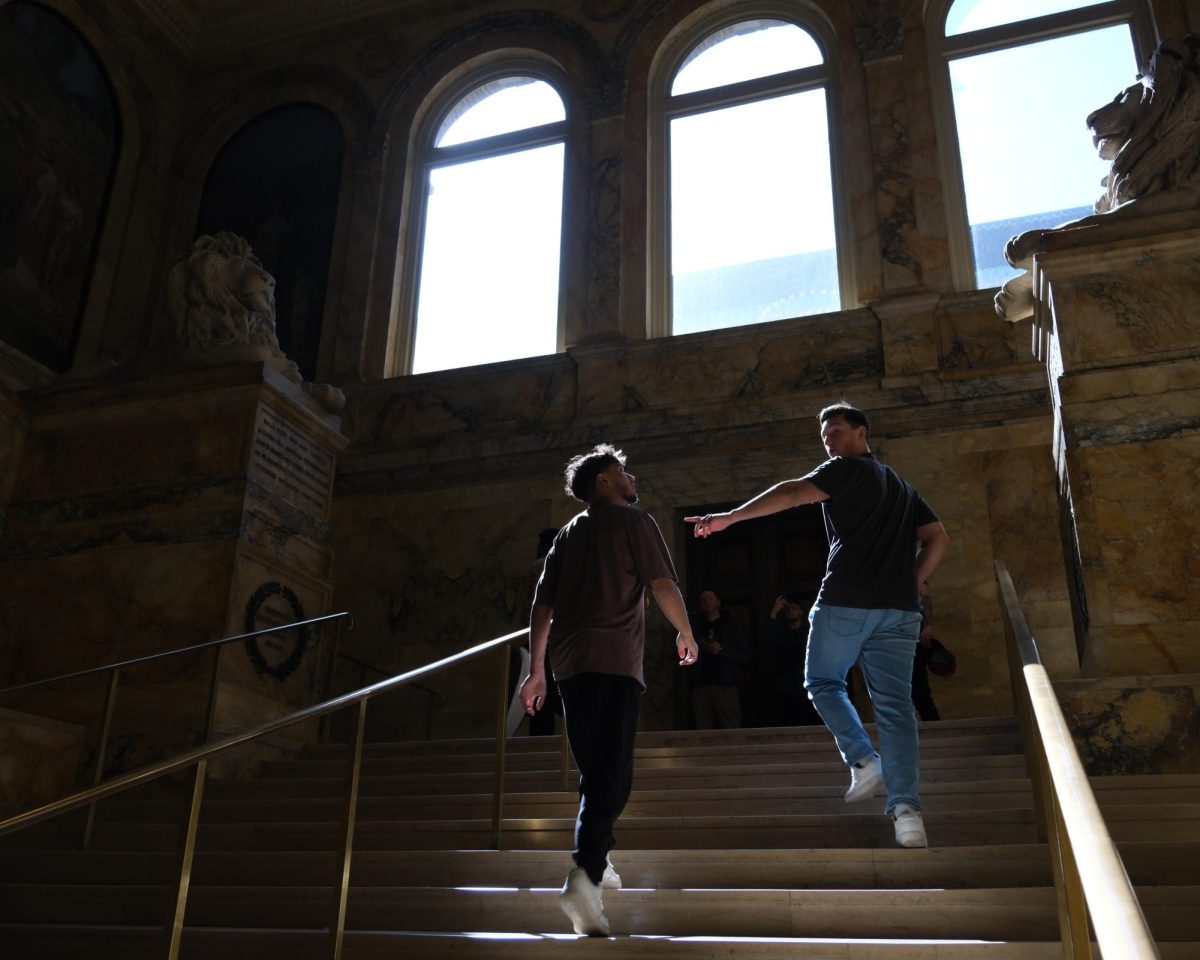Nearly a decade ago, Northeastern English professor Samuel Bernstein was inspired to begin his work on a play about the Nazi Olympics after a conversation with his wife regarding two Jewish-American athletes who were prevented from competing in the 1936 games. This month, renowned New York director Eric Vitale is directing a Boston production of the play that Bernstein finished writing a few years ago.
Bernstein’s study of the scandal that surrounded the president of the United States Olympic Committee during the 1936 competition motivated him to write the play. Through his research, Bernstein said, he learned that then-president of the Committee Avery Brundage did not permit two Jewish-American runners to race in Nazi Germany.
“About eight years ago, I was riding in a car with my wife and I told her about some reading I was doing about the Olympics historically,” Bernstein said. “In my readings, I had come to feel that Mr. Brundage and other persons of note had put political issues before concern for humane behavior. And she said to me, ‘That’s the play you should write, Sam.’”
Co-written with Bernstein’s colleague and former student Marguerite Krupp, “Olympics Über Alles” is a production that considers the corruption and discrimination during the 1936 Nazi Olympics. The play follows a Jewish professor and a Catholic museum curator as they uncover the discrimination of Jewish-American runners Marty Glickman and Sam Stoller. Exploring the history of the largest sports exhibition in the world, the drama challenges viewers to confront the roots of the same prejudices that fueled Word War II.
Though Bernstein has written plays for decades, the idea for “Olympics Über Alles” captivated him because of the influence that Judaism had on him throughout his childhood, he said. Through his grandfather and aunt, who fled to America during the Nazi regime, Bernstein said he came to understand the plight of the Jewish people on a personal level.
“I grew up with the sense that a terrible thing had happened and that I had lost the opportunity to know my paternal grandparents and uncles and aunts,” said Bernstein, who lost some relatives during the Holocaust. “The events of 1936 were not just some distant thing I was studying simply intellectually. The whole experience of the Jewish people in Europe was very much a part of my consciousness all through my growing up period.”
Using his own background to write this play, Bernstein crafted the main characters of the New York Jewish professor and the Irish Catholic museum curator to portray a message of tolerance.
“This play engages us not simply in its intellectual world,” Bernstein said. “It’s a very human story about people with whom we empathize. The notion of people from different religions and different ethnic groups finding a basis for respect and for closeness is a very important one to me. To capture that was a challenge, as Marguerite and I found.”
Because of its universal message, Bernstein said he hopes the play will inspire a diverse audience. “Olympics Über Alles” will be put on at Kresge Little Theater at MIT on Feb. 10, 11, 17, 18 at 8 p.m. and Feb. 12, 19 at 3 p.m. General admissions tickets cost $20, and can be purchased through the myNEU portal.
“I hope that it’s not only adults who come,” Bernstein said. “I think it has a possible appeal for all people regardless of their background. I hope that the humane values that form the play will move people to become more kind, more decent and more understanding of each other.”














